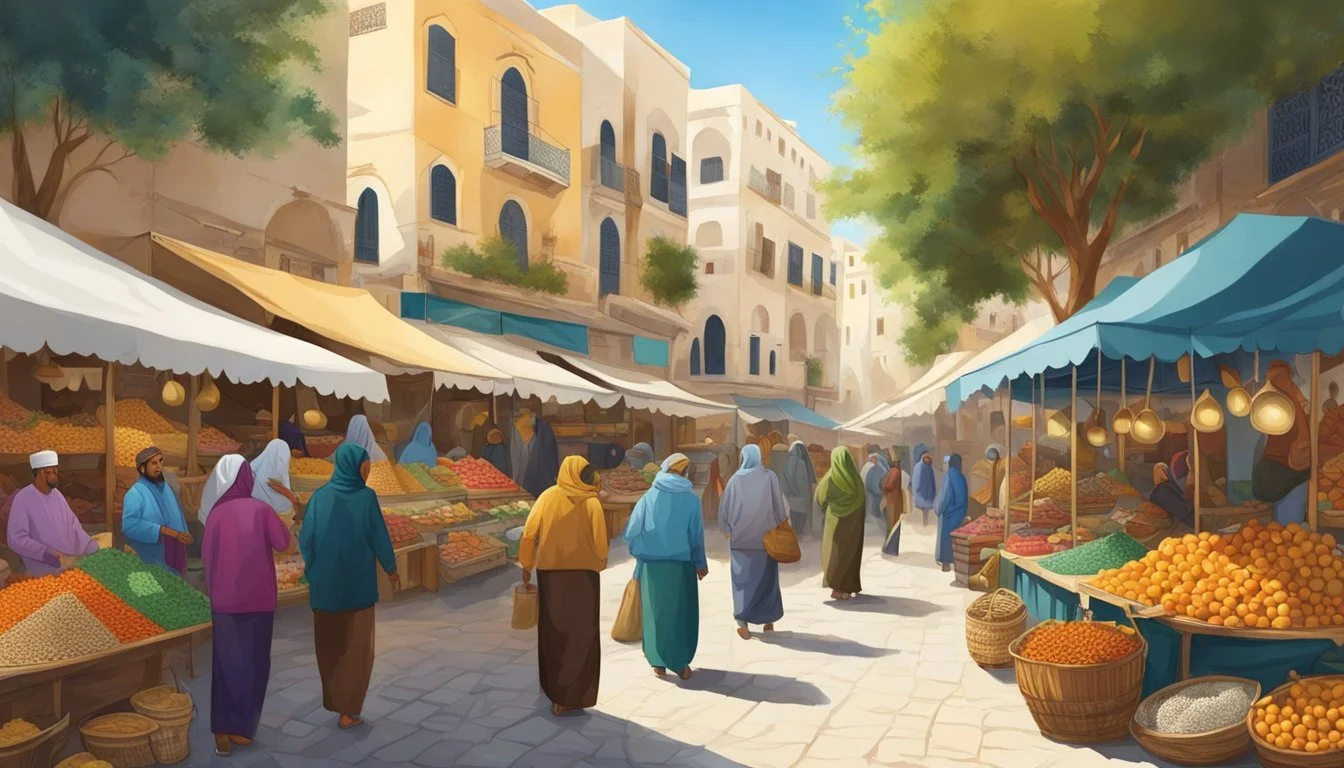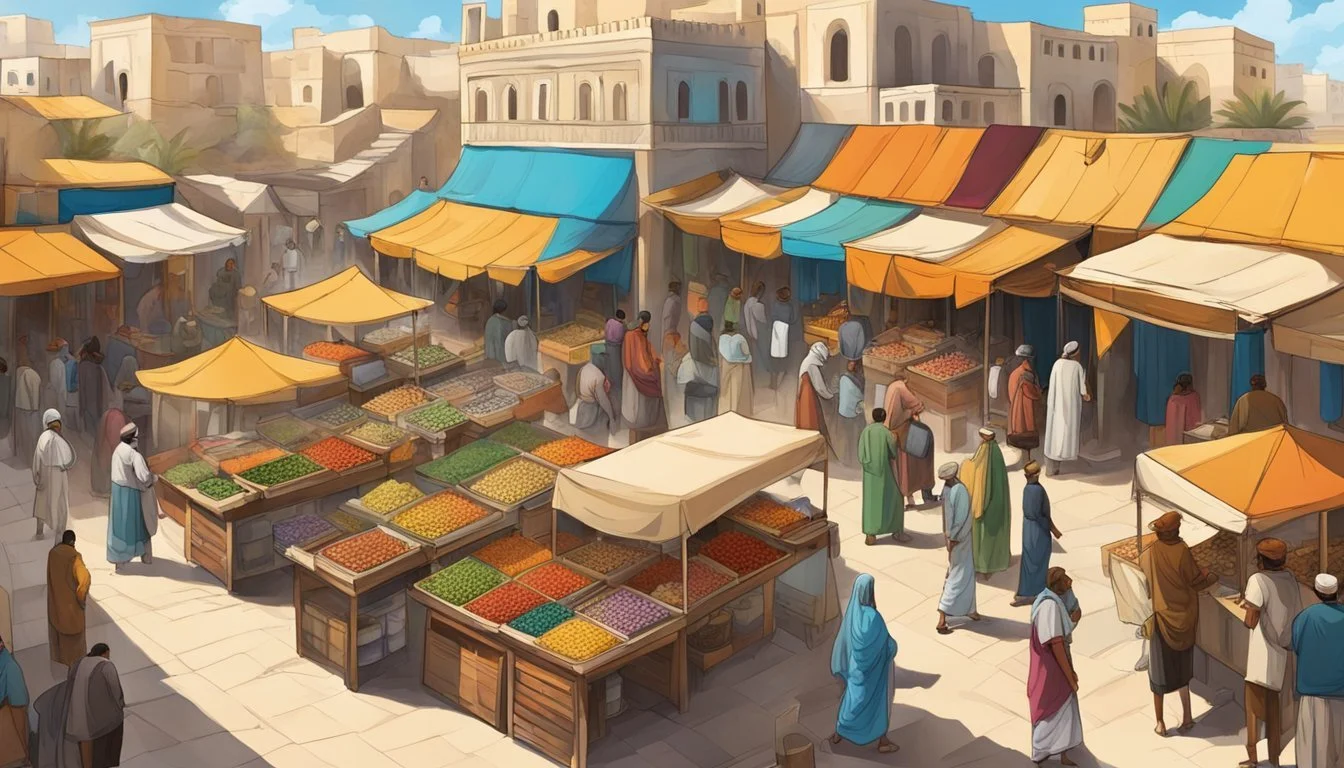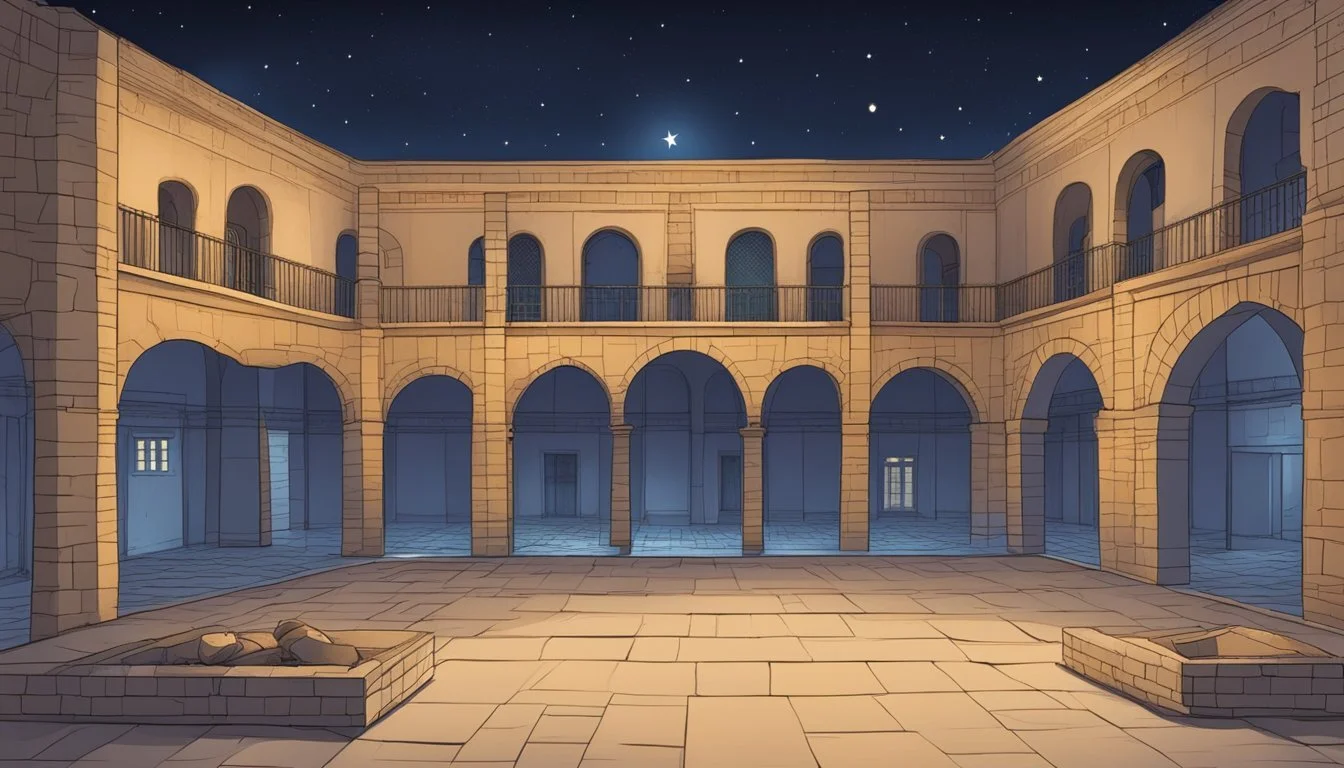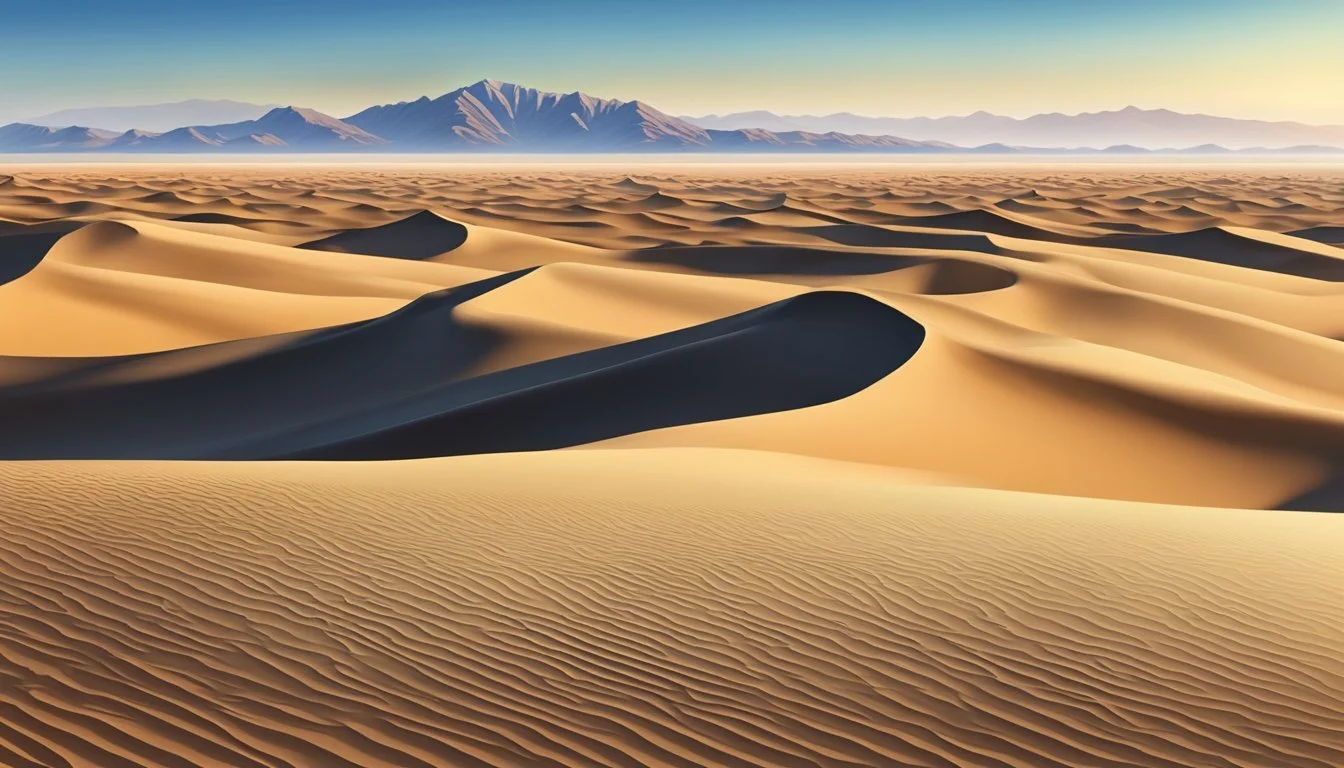7 Thought-Provoking Documentaries on Tunisia
Exploring North Africa's Hidden Gem
Tunisia's rich cultural heritage and complex political landscape have inspired numerous thought-provoking documentaries in recent years. These films offer viewers a window into the North African nation's history, society, and ongoing challenges. From personal stories to broader examinations of social issues, Tunisian documentaries provide valuable insights into the country's past and present.
Filmmakers exploring Tunisia's story often tackle difficult topics, including the aftermath of the 2011 revolution, women's rights, and religious extremism. Their work showcases the diversity of Tunisian cinema and highlights the nation's role in shaping contemporary Arab culture. Through these documentaries, audiences gain a deeper understanding of Tunisia's unique position at the crossroads of Mediterranean, African, and Middle Eastern influences.
1) The Seasons of Life - Tunisian craftsmanship and culture
The documentary "The Seasons of Life" offers a captivating glimpse into Tunisia's rich artisanal heritage. It showcases the country's traditional crafts and their deep cultural significance.
The film explores various Tunisian crafts, including pottery, textiles, and metalwork. It highlights how these ancient skills have been passed down through generations, preserving the nation's cultural identity.
Viewers are taken on a journey through different regions of Tunisia, each with its unique crafting traditions. The documentary showcases the intricate patterns of Berber pottery from Sejnane and the vibrant colors of hand-woven carpets from Kairouan.
"The Seasons of Life" also examines how modern influences are shaping Tunisia's craft scene. It features artisans who blend traditional techniques with contemporary designs, creating innovative pieces that appeal to a global market.
The film emphasizes the importance of these crafts in Tunisia's economy and cultural landscape. It demonstrates how artisanal work provides livelihoods for many Tunisians, particularly in rural areas.
2) El Gort - Exploring the life of young Tunisians
"El Gort" offers a raw glimpse into the lives of two young Tunisians struggling to survive in the hay trade. The documentary captures their grueling daily routines, which begin early and seem endless.
The film showcases the harsh realities faced by Tunisian youth, caught between unemployment and exploitation. It paints a vivid picture of dreams for a carefree youth quickly turning to despair.
Director Hamza Ouni's work is known for its collaboration with precarious youth in Tunisia. "El Gort" is a result of his long-term engagement with the community in Mhamdia, his hometown.
The documentary's wild energy leaves a lasting impression on viewers. It provides sharp commentary on contemporary Tunisia, highlighting the challenges faced by its younger generation.
Since the 2010 uprising, unemployment rates among young Tunisians have risen. This lack of opportunities has led many to consider leaving the country in search of better prospects.
"El Gort" stands out as a thought-provoking piece that sheds light on the socioeconomic issues plaguing Tunisia's youth. It serves as a powerful reminder of the ongoing struggles in the nation.
3) 3000 Nights - A Palestinian mother's story in a Tunisian prison
"3000 Nights" is a powerful drama directed by Mai Masri that sheds light on the experiences of Palestinian prisoners in Israeli jails. The film centers on Layal, a young Palestinian woman who gives birth to her son while incarcerated.
Set in the 1980s, the story follows Layal as she navigates the challenges of motherhood within the confines of prison walls. The film explores themes of resilience, hope, and the struggle for dignity in difficult circumstances.
Mai Masri, an experienced Palestinian filmmaker, brings authenticity to the narrative through meticulous research and interviews with former prisoners. The production was filmed in a real prison, adding to its raw and realistic portrayal.
While the film is not specifically set in Tunisia, its themes resonate with broader issues of justice and human rights in the region. "3000 Nights" has garnered international acclaim, screening at prestigious film festivals and earning recognition for its poignant storytelling.
The film offers a unique perspective on the lives of Palestinian women in Israeli prisons, highlighting their strength and determination in the face of adversity. Through Layal's journey, viewers gain insight into the complexities of the Israeli-Palestinian conflict and its impact on individuals.
4) No Man's Love - A journey through Tunisia's landscapes
"No Man's Love" offers viewers a captivating exploration of Tunisia's diverse landscapes. This documentary takes audiences on a visual journey through the country's varied terrain.
The film showcases Tunisia's stunning coastlines, featuring pristine beaches and azure waters of the Mediterranean. It then ventures inland to the lush green hills and fertile valleys of the north.
As the journey continues, viewers are transported to the arid expanses of the Sahara Desert. The documentary captures the stark beauty of sand dunes and rocky plateaus, highlighting the harsh yet mesmerizing nature of this environment.
"No Man's Love" also explores Tunisia's ancient ruins and historical sites. It presents a unique perspective on how these structures blend with the natural landscape, creating a visual tapestry of past and present.
The documentary employs breathtaking aerial footage and intimate ground-level shots to provide a comprehensive view of Tunisia's geographical diversity. It effectively illustrates the country's natural beauty and the ways in which its landscapes have shaped its culture and history.
5) Upon the Shadow - LGBTQ+ life in Tunis
"Upon the Shadow" is a documentary film directed by Nada Mezni Hafaiedh that offers a candid look into the lives of LGBTQ+ individuals in Tunisia. The film centers on Amina Sboui, a former Femen activist, and her circle of LGBTQ+ friends.
Set in Tunis, the documentary provides an unfiltered view of the challenges faced by the LGBTQ+ community in a society where their identities are often rejected. The film explores themes of social persecution and political struggle from a queer perspective.
Hafaiedh's work sheds light on the hidden realities of LGBTQ+ life in Tunisia following the Arab Spring. It depicts the daily experiences of individuals who have been ostracized by their families and society at large.
The documentary premiered at the Thessaloniki Documentary Festival in 2017 and was also shown at Tunisia's largest film festival the same year. Its screening helped bring issues of gender identity and sexual orientation to the forefront of social discourse in Tunisia.
Through intimate portrayals, "Upon the Shadow" aims to increase visibility and awareness of the lived experiences of LGBTQ+ individuals and activists in Tunisia. The film serves as a powerful tool for understanding the complexities of queer life in a conservative society.
6) Zaineb Hates the Snow - A girl's journey in post-revolution Tunisia
"Zaineb Hates the Snow" offers a unique perspective on post-revolution Tunisia through the eyes of a young girl. Directed by Kaouther Ben Hania, this documentary follows nine-year-old Zaineb as she navigates significant life changes.
The film begins in 2009, shortly after Zaineb loses her father in a car accident. Her mother decides to remarry and move the family to Canada, a prospect Zaineb initially resists.
Ben Hania's camera captures Zaineb's emotional journey as she grapples with leaving her home country. The documentary explores themes of cultural adjustment and the challenges faced by immigrant families.
Zaineb's integration into Canadian society forms a central part of the narrative. The film examines how she adapts to a new environment, language, and customs, including her first encounters with snow.
Through Zaineb's experiences, viewers gain insight into the complexities of identity and belonging for young Tunisians in a post-revolution world. The documentary sheds light on the broader societal changes occurring in Tunisia during this period.
"Zaineb Hates the Snow" stands out for its intimate portrayal of a child's perspective amidst significant personal and national transitions. It offers a poignant look at the human side of migration and cultural adaptation.
7) The Last of the Hill Tribes - Socio-cultural exploration of Tunisia
"The Last of the Hill Tribes" explores the Amazigh people of Tunisia, an indigenous group with a rich cultural heritage. The documentary sheds light on their struggle to maintain their identity and traditions in modern Tunisia.
Viewers are taken on a journey through remote Amazigh villages, showcasing their distinct architecture and way of life. The film highlights the unique stone buildings and troglodyte dwellings that have served as protection for centuries.
The Amazigh's historical resilience is a central theme, as the documentary examines how they have survived numerous invasions and attempts at marginalization. It presents their efforts to preserve their language, customs, and artistic expressions.
The film also touches on the challenges faced by Amazigh communities in contemporary Tunisia. It explores their fight for recognition and the preservation of their cultural practices within a rapidly changing society.
Through interviews with community elders and younger generations, the documentary provides insights into the Amazigh's perspectives on their place in Tunisia's diverse cultural landscape. It offers a nuanced look at the complexities of maintaining traditional lifestyles in a modernizing world.
Historical Context of Tunisian Documentaries
Tunisian documentaries have evolved significantly over the decades, reflecting the country's socio-political changes and cultural shifts. These films provide a lens into Tunisia's past and present, exploring diverse themes with increasing artistic sophistication.
Evolution of Tunisian Cinema
Tunisia's film industry began developing in the 1960s after gaining independence from France. Early documentaries focused on nation-building and cultural identity. The 1970s and 1980s saw a rise in social realism, with filmmakers tackling issues like rural life and women's rights.
Post-2011 Arab Spring, Tunisian documentaries experienced a renaissance. Filmmakers gained more creative freedom, leading to bolder, more experimental works. Modern documentaries like Hamza Ouni's "El Gort" (2013) and "El Medstansi" (2020) showcase long-term collaborations with marginalized youth, offering intimate portrayals of Tunisian society.
Themes and Narratives
Tunisian documentaries often explore themes of political transition, social inequality, and cultural identity. Many films delve into the causes and aftermath of the Arab Spring, providing personal accounts alongside broader historical context.
Recent works like "Four Daughters" examine the impact of extremist groups on Tunisian families. Other documentaries focus on youth experiences, rural-urban divides, and the challenges of modernization. Filmmakers increasingly blend traditional documentary techniques with innovative storytelling approaches, creating powerful narratives that resonate both locally and internationally.
Influential Documentaries and Their Impact
Tunisian documentaries have played a crucial role in shaping public opinion and shedding light on important societal issues. These films have sparked conversations and prompted action on various fronts.
Social and Political Influence
Documentaries like "The Silences of the Palace" (1994) by Moufida Tlatli exposed the harsh realities of women's lives in Tunisia's patriarchal society. This film sparked debates on gender equality and women's rights.
"It's About to Rain" (2012) by Hatem Ben Miled highlighted environmental concerns in Tunisia, leading to increased awareness of ecological issues. The documentary prompted local initiatives for sustainable development.
"The Challenge" (2016) by Nadia El Fani tackled religious extremism, fostering discussions on secularism and tolerance. It encouraged critical thinking about the role of religion in Tunisian society.
Economic and Cultural Perspectives
"Babylon" (2012) by Ala Eddine Slim explored Tunisia's economic challenges, focusing on youth unemployment. The film influenced policy discussions on job creation and economic reform.
"The Man Behind the Microphone" (2017) by Claire Belhassine showcased Tunisia's rich musical heritage. It reignited interest in traditional Tunisian music and boosted cultural tourism.
"Couscous: Seeds of Dignity" (2017) by Habib Ayeb examined agricultural policies and food sovereignty. The documentary sparked debates on sustainable farming practices and rural development.







